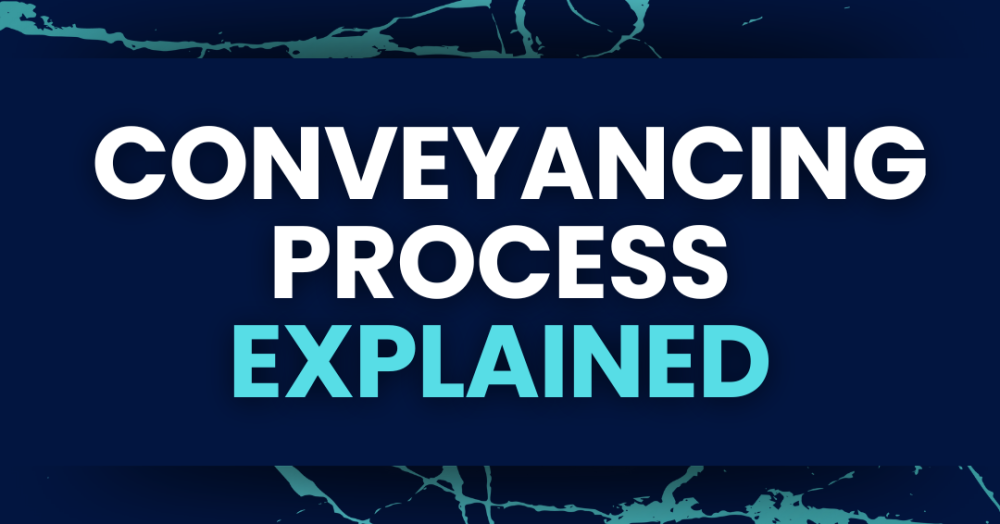Buying or selling a property is one of the most significant financial transactions most people will ever make. If you're new to the property market or need a refresher, this blog outlines exactly what you can expect during the conveyancing process from start to finish.
What is Conveyancing?
Conveyancing is the legal transfer of property ownership from one person to another. It begins after an offer on a property is accepted and continues until the keys are handed over on completion day. In the UK, the process is typically handled by a solicitor or licensed conveyancer.
Step-by-Step Breakdown of the Conveyancing Process
1. Instructing a Conveyancer
Once your offer is accepted (or you've accepted an offer on your home), the first step is to instruct a conveyancer. You'll need to provide identification, complete some initial forms, and agree to the firm’s terms and fees.
2. Drafting and Reviewing Contracts
The seller’s solicitor will prepare a draft contract and send it to the buyer’s solicitor along with supporting documents such as the property title deeds, EPC (Energy Performance Certificate), and property information forms.
The buyer’s solicitor reviews these documents to ensure everything is in order and raises any pre-contract enquiries.
3. Property Searches
The buyer’s solicitor will carry out several searches to gather information about the property. These typically include:
Local authority search – reveals planning permissions, building regulations, and road schemes.
Environmental search – checks for flood risks, contamination, and other environmental issues.
Water and drainage search – confirms property is connected to public sewers and water supply.
These searches help identify any issues that might affect the property’s value or your decision to proceed.
4. Securing a Mortgage Offer
If you're a buyer relying on a mortgage, your lender will carry out a valuation and issue a formal mortgage offer. Your solicitor will review this to ensure the terms are acceptable.
5. Pre-Contract Enquiries and Negotiation
Your solicitor will raise any concerns with the seller’s solicitor, such as unclear boundaries, missing permissions for building work, or restrictive covenants. Negotiations may also include agreeing on fixtures and fittings to be included in the sale.
6. Signing the Contract
Once all issues are resolved, both parties sign the final contract. At this stage, a completion date is also agreed upon.
7. Exchange of Contracts
This is the critical legal step in the conveyancing process. Both solicitors exchange signed contracts, and the buyer pays the deposit (typically 10%). From this point on, the agreement is legally binding.
8. Final Preparations
Before completion, the buyer’s solicitor will:
- Request the mortgage funds from the lender
- Carry out final checks (e.g., verifying nothing has changed since the exchange)
- Prepare a completion statement detailing the final amounts due
9. Completion Day
On the agreed date, the buyer’s solicitor transfers the remaining funds to the seller’s solicitor. Once confirmed, the keys are released to the buyer and ownership officially changes hands.
10. Post-Completion Tasks
After completion, the buyer’s solicitor will:
- Pay Stamp Duty Land Tax (SDLT) to HMRC (if applicable)
- Register the new ownership with HM Land Registry
- Send the buyer the title deeds and confirmation of registration
How Long Does Conveyancing Take?
On average, the conveyancing process takes 8-12 weeks, but this can vary depending on factors like mortgage delays, property chains, and legal issues.
Common Delays in Conveyancing
- Delays in obtaining searches or mortgage offers
- Issues raised during legal enquiries
- Long property chains
- Unresponsive parties (buyer, seller, or solicitors)
Tips for a Smoother Conveyancing Experience
- Choose a proactive solicitor or conveyancer with good communication skills.
- Be responsive and return forms, ID, and information quickly.
- Secure your mortgage early to avoid delays.
- Ask questions if you’re unsure about any part of the process.
Final Thoughts
Understanding the conveyancing process can help make your property transaction less stressful and more transparent. By knowing what to expect and working with experienced professionals, you can confidently navigate each stage and soon be unlocking the door to your new home. Whether you’re buying or selling, staying informed is key to a successful move in the UK property market. If you are looking to learn more or discuss this with an award winning professional, give us a call on 0121 681 6327.
